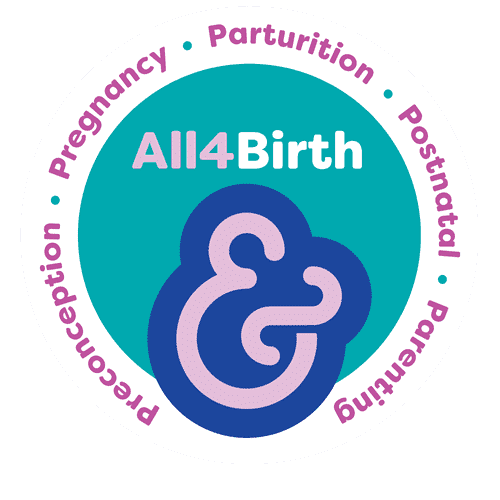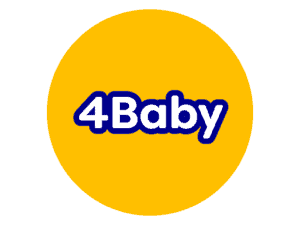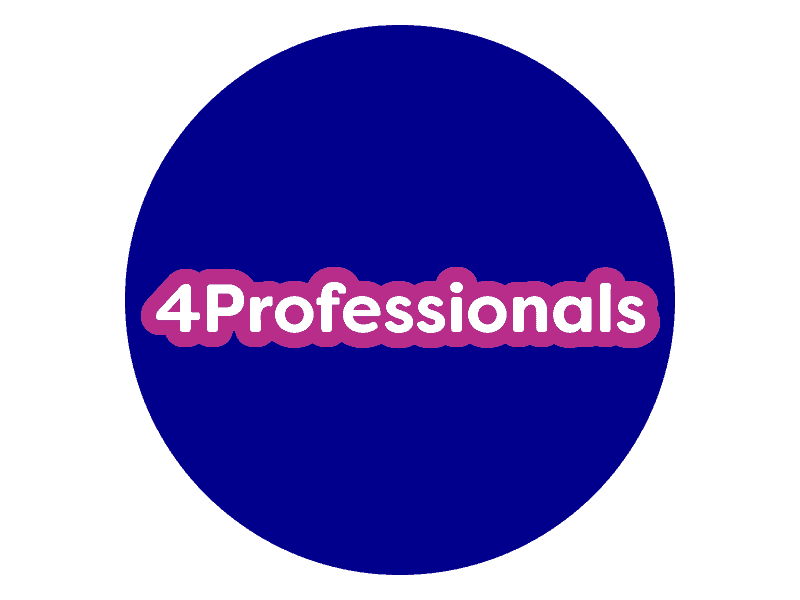Abbie Tomson
Midwife MSc, BSc, Yoga Teacher, Project Lead at All4Birth
@enevlorel @All4Birth
Summary
Embarking on the journey of parenthood is a momentous occasion filled with excitement, anticipation, and a myriad of questions. From navigating pregnancy to preparing for childbirth and beyond, the journey can feel overwhelming without proper guidance and support. This is where antenatal education comes into play, offering expectant parents invaluable knowledge, resources, and empowerment to navigate the joys and challenges of pregnancy, birth, and early parenthood. In this blog post, we will explore the profound benefits of antenatal education and why every expectant parent should consider it a vital part of their pregnancy journey.
Understanding Antenatal Education:
Antenatal education, also known as childbirth education or prenatal classes, encompasses a range of educational opportunities tailored to expectant parents. These classes cover various topics, including pregnancy nutrition, childbirth preparation, breastfeeding, newborn care, postpartum recovery, and parenting skills. Antenatal education can occur in various settings, including hospitals, birthing centres, community centres, and online platforms, making it accessible to many individuals. Antenatal education isn’t just understanding the ‘what’, but also ‘why’, ‘how’ and ‘when’. It provides you with the tools to communicate with healthcare professionals about your wishes, arm you with tools and knowledge to make decisions and take ownership for your pregnancy and birth journey.
Empowering Expectant Parents
One of the most significant benefits of antenatal education is the empowerment it provides to expectant parents. By arming themselves with knowledge and information about pregnancy, childbirth, and early parenting, individuals can feel more confident and prepared to make informed decisions that align with their values and preferences. Research has shown that antenatal education can increase self-efficacy and empowerment among expectant parents 1
Recent Government Publication: The All-Party Parliamentary Group on Birth Trauma calls on the UK Government to publish a National Maternity Improvement Strategy, led by a new Maternity Commissioner who will report to the Prime Minister, will outline ways to:
“Point 6:. Ensure better education for women on birth choices. All NHS Trusts should offer antenatal classes. Risks should be discussed during both antenatal classes and at the 34-week antenatal check with a midwife to ensure informed consent. All pregnant women should have the opportunity to access good quality antenatal education that explains, clearly and straightforwardly, what giving birth involves, what the risks are and the kinds of choices they might have to make during labour so that they can think them through beforehand. Women should also have access to a risk calculator that helps them understand their own individual
risk profile and to make choices about their birth accordingly” 2
Promoting Informed Decision-Making (About B.R.A.I.N)
Antenatal education equips expectant parents with the information they need to make informed decisions about their care during pregnancy, childbirth, and postpartum. By understanding their options for pain management, interventions, and birth preferences, individuals can advocate for their needs and preferences more effectively. This can lead to improved birth experiences and better outcomes for both parents and babies 3.
Antenatal classes play a crucial role in promoting informed decision-making during pregnancy, childbirth, and early parenthood. The B.R.A.I.N acronym is a helpful tool used in maternity care to facilitate this process, which many education programs use:
1. Benefits: Antenatal education can inform expecting parents about the benefits of various birth options and maternity care practices. Understanding the potential advantages of different interventions or approaches allows parents to make decisions that align with their preferences and values.
2. Risks: Informed decision-making requires an understanding of the potential risks associated with different choices. Antenatal education can educate parents about the potential risks of various medical interventions, procedures, and birth options. This empowers you to weigh the risks against the benefits and make decisions that prioritise your safety and well-being.
3. Alternatives: Antenatal education introduces you to the range of options available during pregnancy, childbirth, and postpartum. This includes alternative approaches to pain management, birthing positions, breastfeeding techniques, and postnatal care practices. Parents can make choices that best suit their needs and preferences by exploring alternatives.
4. Intuition: Antenatal classes encourage parents to trust their intuition and instincts when making decisions about their maternity care. While medical expertise and evidence-based information are essential, acknowledging and honouring parents’ intuition can help them feel more confident and empowered in their decision-making process.
5. Nothing: Sometimes, the best decision is to do nothing or to delay deciding until more information is available. Antenatal education can highlight to parents that they have the right to refuse interventions or procedures that they feel uncomfortable with or that do not align with their preferences. They also emphasize the importance of informed consent and shared decision-making between parents and healthcare providers.
Promoting informed decision-making in maternity care is important for several reasons:
1. Empowerment: Informed decision-making empowers expecting parents to participate in their maternity care journey actively. When parents are well-informed, they can advocate for their preferences and make choices that feel right for them and their baby.
2. Reducing Anxiety: Pregnancy and childbirth can be overwhelming, especially for first-time parents. Antenatal classes help alleviate anxiety by providing accurate information and preparing parents for what to expect during pregnancy, labour, and the postpartum period. This knowledge enables parents to approach childbirth with greater confidence and peace of mind.
3. Enhancing Birth Experience: Informed decision-making allows parents to tailor their birth experience to meet their unique needs and preferences. Whether they choose a natural birth, medicated birth, or cesarean section, knowing their options and making informed choices can contribute to a more positive and satisfying birth experience.
4. Better Health Outcomes: When parents are actively involved in decision-making and feel empowered to advocate for themselves, they are more likely to experience better health outcomes for themselves and their babies. Informed choices can help minimize unnecessary interventions and complications, leading to safer and healthier pregnancies and births.
Building Support Networks
Antenatal classes serve as a valuable opportunity for expecting parents to build a support network, which can have numerous benefits for maternal and infant health outcomes.
1. Social Support and Well-being: Research consistently demonstrates that social support during pregnancy can have a positive impact on maternal mental health and well-being. Antenatal classes provide a structured environment for expecting parents to connect with others who are going through similar experiences. This shared camaraderie can help alleviate feelings of isolation and anxiety, contributing to improved psychological well-being for mothers-to-be. Research has found that women who participated in antenatal classes reported higher levels of social support compared to those who did not attend such classes 4
2. Information Sharing and Peer Learning: Antenatal classes offer a platform for expecting parents to exchange information, share experiences, and learn from one another. This peer-to-peer interaction can be particularly valuable for first-time parents who may have questions or concerns about pregnancy, birth, and parenting. By hearing about others’ experiences and perspectives, expecting parents can gain valuable insights and practical tips that can enhance their preparation for birth and parenthood 5
3. Reducing Anxiety and Stress: Pregnancy can be a time of heightened anxiety and stress for many women, especially if they lack social support. Engaging with a supportive network of peers during antenatal classes can help reduce feelings of anxiety and stress by providing reassurance, encouragement, and empathy. A systematic review found that participation in antenatal classes was associated with reduced maternal anxiety and improved self-efficacy in childbirth 6
4. Postnatal Support and Parenting Resources: The connections formed during antenatal classes can extend beyond pregnancy and childbirth, providing a valuable support network for new parents during the postnatal period. Parents can continue to draw upon their relationships with classmates for advice, emotional support, and practical assistance as they navigate the challenges of early parenthood. This ongoing support can contribute to more positive parenting experiences and improved outcomes for both parents and babies 7
Preparing for Parenthood
Antenatal classes play a significant role in preparing expectant parents for the journey of parenthood, offering education, support, and practical skills that can positively impact birth outcomes and postpartum experiences.
1. Improving Parental Preparedness: Several studies have shown that antenatal classes effectively prepare expectant parents for childbirth and early parenthood. Quantitative research has demonstrated improvements in knowledge, confidence, and decision-making skills among participants. For example, a systematic review found that antenatal education programs were associated with increased knowledge about childbirth and improved maternal self-efficacy 7. Additionally, qualitative studies have highlighted parents’ perceptions of antenatal classes as valuable resources for learning practical skills, such as changing nappies, bathing, and soothing techniques 8
2. Promoting Breastfeeding: Antenatal classes often include information and support related to breastfeeding, which can positively influence breastfeeding initiation and duration rates. Quantitative studies have shown that antenatal breastfeeding education is associated with higher rates of breastfeeding initiation and longer breastfeeding duration. A meta-analysis found that antenatal breastfeeding education significantly increased the likelihood of breastfeeding initiation and exclusive breastfeeding at six months postpartum 9. Qualitative research has further elucidated the role of antenatal classes in promoting breastfeeding by providing expectant parents with accurate information, addressing misconceptions, and building confidence in breastfeeding abilities 10
3. Facilitating Physiological Birth: Antenatal classes often emphasise the benefits of physiological birth and provide information about labour and birth options, including strategies to promote a positive birth experience. While the evidence linking antenatal classes specifically to increased rates of physiological birth is limited, qualitative studies have highlighted the impact of antenatal education on parents’ attitudes and preferences regarding childbirth. Research has shown that antenatal classes can empower parents to advocate for their birth preferences, leading to increased rates of spontaneous vaginal birth and decreased rates of interventions such as cesarean section 11
Conclusion
In conclusion, antenatal education plays a crucial role in empowering expectant parents, promoting informed decision-making, building support networks, and preparing individuals for the journey of parenthood. By providing comprehensive information, practical skills, and a supportive environment, antenatal classes enable parents to approach pregnancy, childbirth, and early parenting with confidence and knowledge.
The evidence suggests that antenatal education programs effectively improve parental preparedness by enhancing knowledge, confidence, and decision-making skills. Furthermore, these classes play a significant role in promoting breastfeeding initiation and duration rates, as well as empowering parents to advocate for their birth preferences, potentially leading to increased rates of normal birth.
Additionally, antenatal classes provide a valuable opportunity for expectant parents to build social support networks, which can have positive impacts on maternal mental health and well-being. By connecting with peers, sharing experiences, and receiving encouragement, parents can navigate the challenges of pregnancy and early parenthood more effectively.
Recent government recommendations emphasise the importance of accessible and high-quality antenatal education for all expecting parents, highlighting the need for clear and straightforward information about birth options and risks. By equipping parents with the tools and knowledge to make informed decisions, antenatal education contributes to better health outcomes for both parents and babies.
Overall, antenatal education serves as a cornerstone of maternity care, promoting empowerment, informed decision-making, and supportive networks that enhance the pregnancy and childbirth experience for expectant parents. Investing in comprehensive and accessible antenatal education programs is essential for improving maternal and infant health outcomes and promoting positive birth experiences.
Links to other resources
 Books
Books
Brain Health from Birth: Nurturing Brain Development During Pregnancy and the First Year by Rebecca Fett
Real Food for Pregnancy by Lily Nichols
Reclaiming Childbirth as a Rite of Passage by Rachel Reed
 Film Audio, Apps and Podcasts
Film Audio, Apps and Podcasts
Baby Buddy app, created by the Best Beginnings Charity
 Websites
Websites
References
- Henderson, J., et al. (2019). “Impact of a telephone-delivered and nurse-monitored, home-based exercise program on the postnatal quality of life of primiparous women: a randomized controlled trial.” BMC Pregnancy and Childbirth, 19(1), 421.
- The All-Party Parliamentary Group on Birth Trauma (2024) ‘Listen to Mums: Ending the Postcode Lottery on Perinatal Care’. Available at:
- Jomeen, J., & Redshaw, M. (2013). “The acceptability to women of antenatal emotional well-being assessment in an obstetric context.” Maternal and Child Health Journal, 17(2), 281-289.
- Ming, C., Yean, L., Jun, L., & Sun, C. (2018). Social Support and Its Impact on Mothers’ Participation in Health Education. Journal of Obstetric, Gynecologic & Neonatal Nursing, 47(4), S79.
- Yen, C. F., Cheng, C. P., Huang, C. F., & Lin, P. C. (2019). The effectiveness of a childbirth psychoeducation program in enhancing self-efficacy and reducing postpartum depression among Chinese first-time mothers. BMC Pregnancy and Childbirth, 19(1), 1-9.
- Brixval, C. S., Axelsen, S. F., Thygesen, L. C., Due, P., & Koushede, V. (2015). Antenatal education in small classes may increase childbirth self-efficacy: results from a Danish randomised trial. BMC Pregnancy and Childbirth, 15(1), 1-8.
- Gagnon, A. J., Sandall, J., & Callaghan, W. M. (2016). Policy and practice developments in the implementation of guidelines for the management of preterm birth and the prevention of neonatal morbidity and mortality in Ontario, Canada. BMC Pregnancy and Childbirth, 16(1), 1-6.
- Jomeen, J., & Redshaw, M. (2012). Parents’ experiences of first‐trimester fetal ultrasound screening. Birth, 39(4), 283-294.
- Forster, D. A., McLachlan, H. L., Davey, M. A., Amir, L. H., & Gold, L. (2017). Effect of antenatal education on breastfeeding initiation, duration, and exclusivity: a systematic review. Birth, 44(3), 247-257.
- – Schmied, V., Beake, S., Sheehan, A., McCourt, C., & Dykes, F. (2011). Women’s perceptions and experiences of breastfeeding support: A meta-synthesis. Birth, 38(1), 49-60.
- Levett, K. M., Smith, C. A., Bensoussan, A., & Dahlen, H. G. (2016). The complementary therapies for labour and birth study making sense of labour and birth—experiences of women, partners and midwives of a complementary medicine antenatal education course. Midwifery, 40, 124-131.











